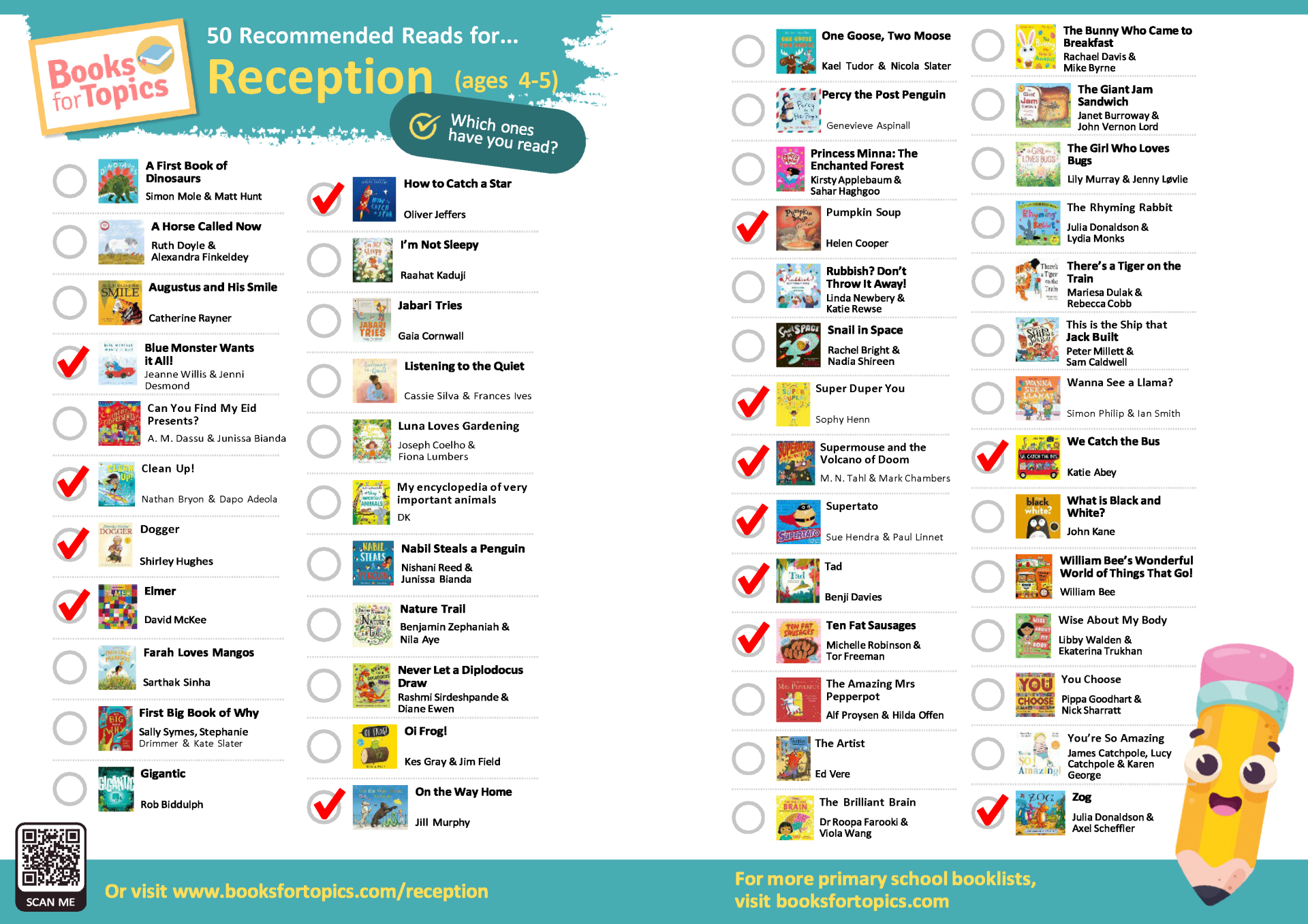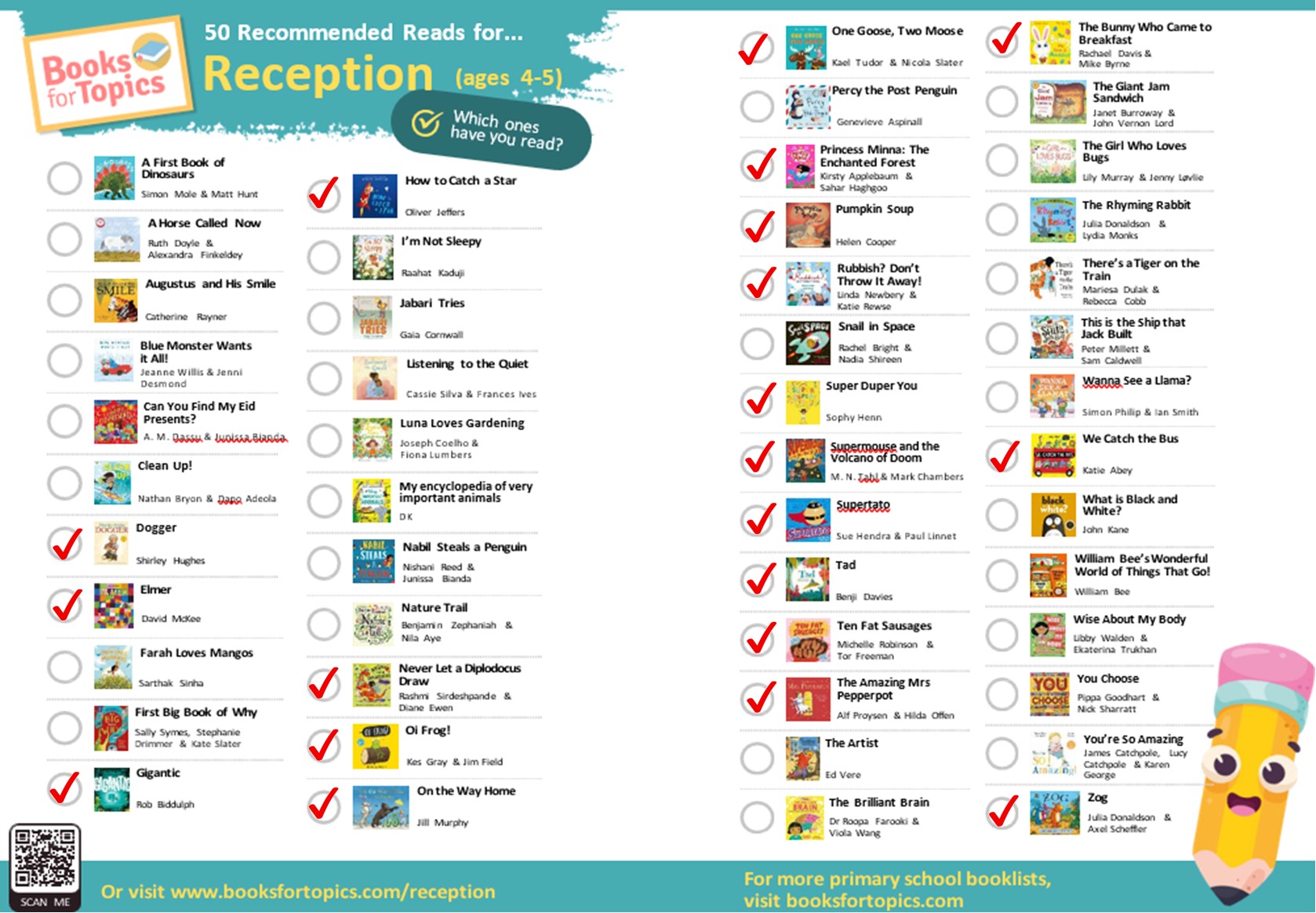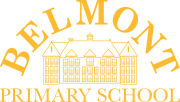-
Reception Notice Board
Notices for week beginning 14th July 2025
Songs we have been learning this weekPirate Party: Wednesday 16th July We are excited to celebrate with a Pirate Party on Wednesday 16th July! Please send your child dressed as a pirate for the day. Make sure they have suitable footwear, a sun hat, and sun cream applied if needed.
Important:
All weapons will be removed at the door. To avoid disappointment, please leave swords and any other weapons at home.
We kindly ask for a £1 donation to help cover crisps, drinks, and ice cream.
Reading Books and Book Bags
Please return all reading, library, and Little Wandle books. We will not be sending any more home.
The Little Wandle reading wallets will go up to Year 1, ready to send books home in the new school year.
We will be sending home book bags with the children's work towards the end of next week.
Friday 18th July
Please note this is the last day of term. We finish school at 1pm.
No toys
Please can you ensure that the children do not bring toys into school in their bags. This really is causing us a lot of problems, especially when the children are bringing them in to class to play with.
Hot Weather
As the weather gets hotter next week, it is important that all children have water bottles and sunhats in school. Please also make sure sun cream is applied before school.
Apples: Wiggly Woo and Caterpillar Oranges - Here is the bee hive and There's a tiny caterpillarBook of the Week - The night pirates

Our learning challenges this week:
1. To make a map. Children will be learning about maps and will then create their own map to buried treasure
2. To write or draw a transition flag. Children to use their phonic knowledge and tricky words to write or draw on their flag to their Year 1 teacher.
3.To design a pirate hat for the pirate party. Children to design their own pirate hat and wear them at the end of year pirate party.
Workshops and Presentations:
Home school partnerships - Thank to everyone that attended our meeting on Wednesday. Please find the slides for the presentation here
Phonics presentation - Thank to everyone that attended our meeting on Tuesday. Please find the slides for the presentation here
Here are some prompt cards for a Walk and Talk trail. The cards have been produced by the National Literacy Trust to support the Start for Life campaign.
Designed to be used in an urban environment, the cards provide a range of tips and activities that can be completed anywhere outside. The aim being to increase the frequency of interactions and enhance the quality of interactions between parent or carer and child.
Tapestry
Weekly Timetable
Oranges
Apples
Tuesday - Library
Wednesday - Library Wednesday - PE
Thursday - PE Please ensure your children bring their book bag to school on Tuesday ready for library days. The book bag should contain their library book so that we can swap it over for a new book for the following week. Book bags will then be returned to you on Wednesday.
Reading for Pleasure books for class
As part of our focus on reading in school, we would like to develop the lending library of books within each class. This will enable the children to foster a passion and love of reading at Belmont and ensure that they have access to high quality texts.
Please find links to two book lists that have a variety of books that we would love to have in class. Once a book has been donated to the class we will add a tick to show we now have it. Please check the list to ensure that the book that you would like to donate is one that we don't already have.
These books will be stamped to show who has generously donated them and shared with all the class.
The books come from the Recommended Books for Reception List which can be found hereApples List
Oranges List

Show and Tell Rota:
The children are encouraged to bring in something for Show and Tell during the week that they are on the rota. This will then be shared at some point during that week. It could be a memento of a trip, a photograph of a special outing or a favourite object or toy. Please see the rota's below.Learning Tree
Please take a look at the Reception Learning Tree. This is an overview of the learning that the children will doing this term.Reading at Belmont
A prime focus for us is to instil and develop a love of reading for all learners. In order to encourage your child to become a lifelong reader, it is important that they learn to Read for Pleasure. As such, the children have access to high quality books both in class and in the library. The children choose two books each week from a selection of story and fact books. This is at the heart of our commitment to encouraging our children to become lifelong readers. These books come home with the children on their library day and must be returned before another can be borrowed.
Please remember that you shouldn’t expect your child to read these books alone. Read the books to or with them. Discuss the pictures, enjoy the story, predict what might happen next, use different voices for the characters, and explore the facts in a non-fiction book. The main thing is that everyone has lots of fun!
There are three types of reading book that your child will have access to at home:
1. A reading practice eBook. This will be at the correct phonic stage for your child. They should be able to read this fluently and independently.
2. A Reading for Pleasure sharing book. Children will not be able to read this on their own. This book is for you to both read and enjoy together.
3. A library book. As above, please spend time with your child reading and discussing the book together.
Blending and segmenting
These are the terms used for the way we break down and put together individual letters/sounds into words for reading and writing. It is a skill that comes with practice, so the more they are exposed to it the better.
Blending – putting sounds together to make a word
This is the first stage of reading. This can easily be done whilst walking along the road or sitting in the car. You tell the children that you are thinking of a word and they have to try and guess what it is. We have been using 2/3/4 sound words e.g. on, cat and tent. You then break the word down into its individual sounds, for instance, o-n /c-a-t /t-e-n-t. It might be that you still need to practically say the word before the children can guess it! When the children have got the word, you need to model the blending back to them and say the completed word. For instance, “that’s right, well done, c-a-t, cat.” It is very important that you always reiterate the sounds and the word.
Segmenting – breaking a word down into its individual sounds
The first stage of segmenting is to hear the initial sounds in words. You could go on a sound hunt around your home to find things beginning with a particular sound or play games such as Eye Spy whilst looking at a picture in a book. Once the children are confidently hearing initial sounds, emphasise final sounds in words for them to hear. Then move onto CVC (consonant, vowel, consonant) words and ask them to work out the sounds in the word, for instance, “I can see a bus, what sounds can you hear in bus?" Magnetic letters or letter cards are also very useful for reinforcing letter recognition at this stage. Give the children the 3 letters that they need for a word and ask them to put them into the right order.
To understand a little more about phonics or if you would like to check how the sounds are pronounced, you could use the links below:
Phase 2 flashcards - not Little Wandle
Little Wandle have also produced flashcards to support the teaching of Little Wandle at home. These can be ordered from https://collins.co.uk/products/9780008563738
Here is the tricky word mat for Reception Tricky Word mat
If you would like to know the sounds and words that the children have learnt this year, please refer to the Little Wandle progression document
Little Wandle has rhymes that go with each letter to support formation. Here is a mat to help the children with their formation Little Wandle Letter formation
Home School Communication Book
Your child will have brought home their Home School Communication Book this week. This book is intended to be an additional way for parents and school staff to communicate information. If you have something that you would like to tell us, please write in the Home School Book and hand it to one of us at the school gate. We will read your comments and reply either in writing or in person. If there is something that we need to communicate to you, we will also use this book so please ensure that it is in your child’s bag daily. Please note that this book is not for communication about going home arrangements.
Names on clothes
Please name ALL of your child’s uniform, including coats and shoes. As I’m sure you are aware, the children do have a tendency to leave jumpers and cardigans around. If they are not named, it becomes very difficult for us to reunite lost items with the correct child. The children go outside every day so please ensure that they have appropriate clothing.
Visible Learning
As you may be aware, the school is engaged in the Visible Learning. As part of this process all staff have undertaken projects within their year groups. The characteristics of effective learning are a key element in the early year's foundation stage. They detail the ways in which children should be learning from their environment, experiences and activities. Children will be displaying the characteristics of effective learning every day. We would like the children to become more familiar with these so have created alien characters for each characteristic.
Characteristics of Effective Learning Aliens
You can support us with the project by:
1. Using the language of learning with the children. For instance, rather than asking “what work have you done?” you could ask “what have you learnt?”
2. Talking to the children at the beginning of the week about the learning that we will be focusing on. This is always on the weekly letter that comes home.
3. When the children are engaged in learning outside of school, make this explicit to the children. For instance, “you have been learning how to write your name.”
4. Become familiar with the alien characters and encourage the children to think about which characteristics they have been using in their learning. For example, “I loved how you kept on trying to learn to ride your bike. You have been a real Trying Trip.”
We will be having a reflection time at the end of each session and awarding certificates and stickers to the children to help familiarise them with this language of learning. Please do come and talk to us if you have any questions around this.
Writing
The children should be encouraged, when appropriate, to begin to write letters using the correct formation. Our Reception children are no longer required to learn to write in pre-cursive. More information will follow alongside our reading scheme.
Mathematical development
To begin with the children will be working on counting objects and movements accurately, recognising numbers when they see them in the environment and understanding place value.
Calendar /Key dates
-


